
Puducherry: A Mélange of Serenity and Colonial Charm
Puducherry, often referred to as Pondicherry or simply Pondy, is a unique blend of French colonial heritage and Indian culture. This charming seaside town, located on the southeastern coast of India, offers a tranquil escape with its serene beaches, quaint streets, and vibrant ashrams. The city's French Quarter, with its mustard-colored colonial villas, chic boutiques, and cafes serving authentic French cuisine, transports you to a different world. Strolling through these well-preserved streets, one can easily forget that they are in India. The Promenade Beach is a must-visit, especially during sunrise and sunset when the sky paints a breathtaking picture over the Bay of Bengal. The nearby Aurobindo Ashram, founded by Sri Aurobindo and Mirra Alfassa, known as the Mother, is a spiritual hub attracting visitors seeking peace and meditation. The ashram’s tranquil gardens and meditation halls offer a serene environment for introspection. For those interested in history and architecture, Puducherry's numerous churches, such as the Basilica of the Sacred Heart of Jesus and the Immaculate Conception Cathedral, showcase the city's colonial past. The Puducherry Museum provides further insights into the region's rich history, featuring artifacts from the French colonial period and ancient times. The vibrant Tamil Quarter, with its colorful markets and traditional homes, adds another layer to Puducherry's diverse charm.
Local tips in Puducherry
- Rent a bicycle or scooter to explore the city at your own pace and enjoy the scenic routes.
- Visit the Auroville community, an experimental township dedicated to human unity, located just a few kilometers from Puducherry.
- Try the local seafood at the many beachside shacks and restaurants for an authentic culinary experience.
- Carry light cotton clothing, sunscreen, and a hat, as Puducherry can get quite warm and sunny.
- Check out the local markets for handicrafts, textiles, and unique souvenirs.
- Respect local customs, especially when visiting religious sites; dress modestly and remove shoes before entering.
Neighbourhoods in Puducherry
Puducherry: A Mélange of Serenity and Colonial Charm
Puducherry, often referred to as Pondicherry or simply Pondy, is a unique blend of French colonial heritage and Indian culture. This charming seaside town, located on the southeastern coast of India, offers a tranquil escape with its serene beaches, quaint streets, and vibrant ashrams. The city's French Quarter, with its mustard-colored colonial villas, chic boutiques, and cafes serving authentic French cuisine, transports you to a different world. Strolling through these well-preserved streets, one can easily forget that they are in India. The Promenade Beach is a must-visit, especially during sunrise and sunset when the sky paints a breathtaking picture over the Bay of Bengal. The nearby Aurobindo Ashram, founded by Sri Aurobindo and Mirra Alfassa, known as the Mother, is a spiritual hub attracting visitors seeking peace and meditation. The ashram’s tranquil gardens and meditation halls offer a serene environment for introspection. For those interested in history and architecture, Puducherry's numerous churches, such as the Basilica of the Sacred Heart of Jesus and the Immaculate Conception Cathedral, showcase the city's colonial past. The Puducherry Museum provides further insights into the region's rich history, featuring artifacts from the French colonial period and ancient times. The vibrant Tamil Quarter, with its colorful markets and traditional homes, adds another layer to Puducherry's diverse charm.
When is the best time to go to Puducherry?
Iconic landmarks you can’t miss
Rock Beach
Explore the serene beauty of Rock Beach in Puducherry, where golden sands meet the rhythmic waves of the Bay of Bengal, creating a perfect coastal escape.
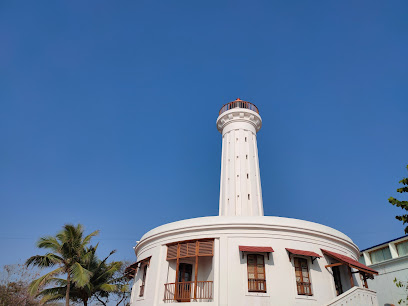
Arulmigu Manakula Vinayagar Devasthanam
Discover the spiritual charm of Arulmigu Manakula Vinayagar Devasthanam, a stunning Hindu temple in Puducherry, rich in culture and history.
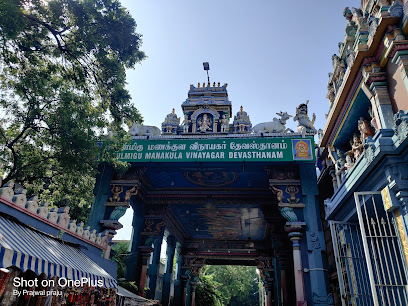
Botanical Garden
Discover the breathtaking beauty of the Botanical Garden in Puducherry, a lush oasis filled with exotic plants and vibrant flowers, perfect for a serene escape.
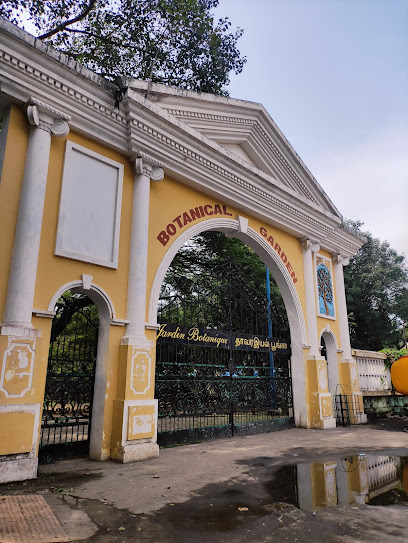
Pondy Marina
Discover the vibrant fusion of beach life and amusement at Pondy Marina, a premier tourist attraction in Puducherry, perfect for all ages.
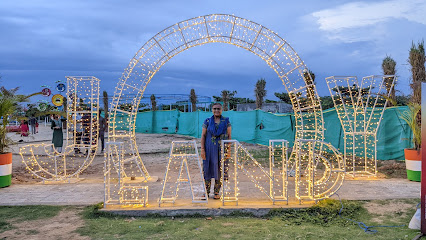
Sri Aurobindo Ashram
Discover peace and spirituality at Sri Aurobindo Ashram, a serene retreat in Puducherry, India, dedicated to inner growth and tranquility.
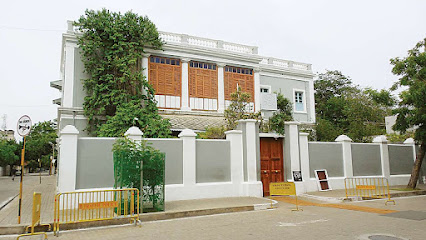
The Sacred Heart Basilica
Explore the Sacred Heart Basilica in Puducherry, where stunning Gothic architecture meets serene spirituality in this iconic tourist attraction.
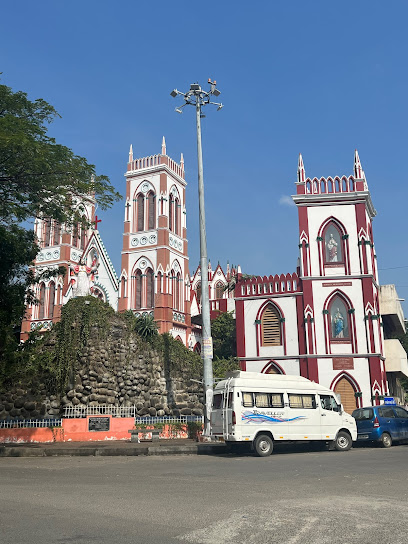
Bharathi Park Puducherry
Explore the serene beauty and rich cultural heritage of Bharathi Park in Puducherry, a perfect escape for nature lovers and history enthusiasts.

Puducherry Museum
Explore the rich cultural heritage of Puducherry at the Puducherry Museum, featuring unique artifacts and a captivating history.
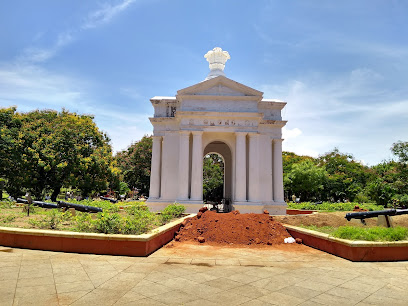
Indira Gandhi Statue
Explore the Indira Gandhi Statue in Puducherry, a significant landmark celebrating leadership and resilience in Indian history.
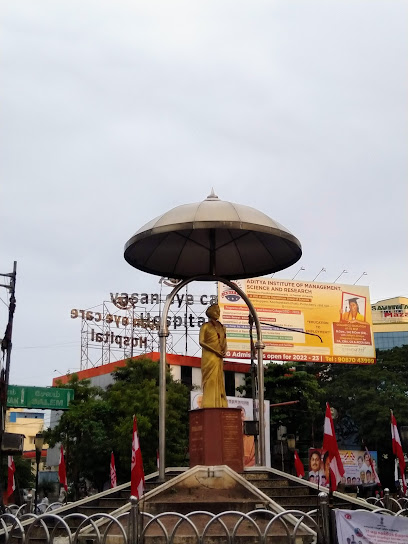
Mahatma Gandhi Statue
Explore the Mahatma Gandhi Statue in Puducherry - a majestic tribute to peace and history nestled in the vibrant atmosphere of White Town.
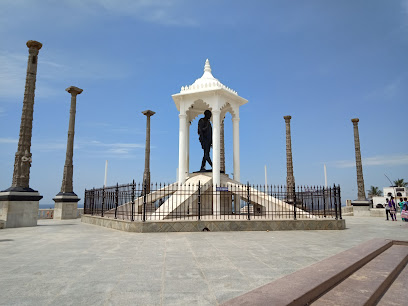
Immaculate Conception Cathedral
Explore the Immaculate Conception Cathedral in Puducherry, a magnificent Gothic structure rich in history and spiritual significance.
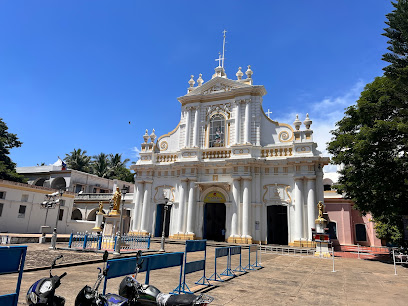
Arikamedu
Explore the ancient trading port of Arikamedu, a fascinating archaeological site that showcases rich history and cultural heritage in Puducherry.
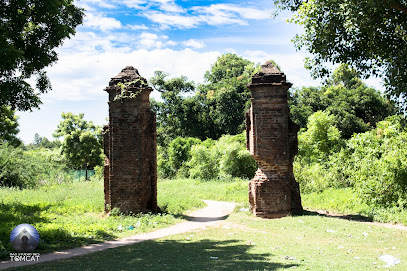
Serenity Beach
Experience the soothing beauty of Serenity Beach in Puducherry - your perfect getaway for relaxation, adventure, and stunning sunsets.
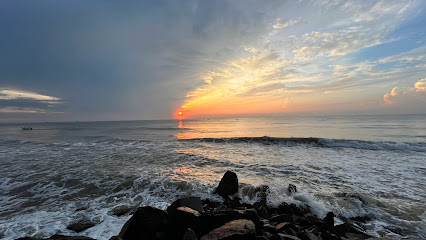
New Light House
Discover the historical charm and breathtaking views at New Light House, an iconic landmark in Puducherry's coastal landscape.
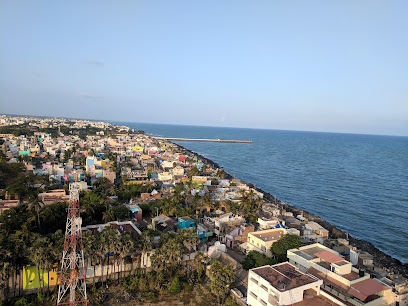
Mahakavi Bharathiyar Memorial Centre
Discover the legacy of Tamil poetry at Mahakavi Bharathiyar Memorial Centre in Puducherry, a must-visit for culture lovers and history enthusiasts.
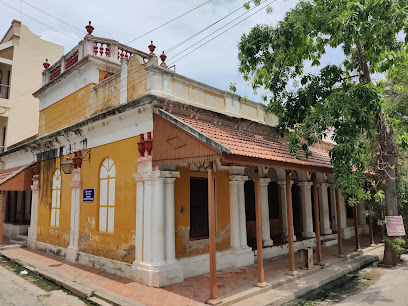
Unmissable attractions to see
Rock Beach
Discover the beauty and vibrancy of Rock Beach in Puducherry, where the Bay of Bengal meets local culture for an unforgettable experience.
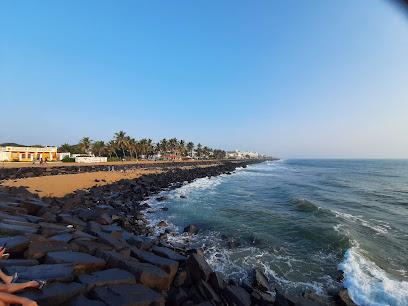
Auroville Visitors Centre
Explore Auroville Visitors Centre, where the ideals of human unity and sustainable living come to life in Tamil Nadu's unique township.
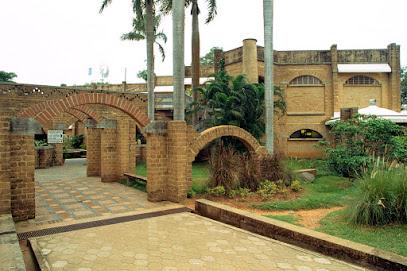
Arulmigu Manakula Vinayagar Devasthanam
Explore the spiritual and cultural essence of Puducherry at Arulmigu Manakula Vinayagar Devasthanam, a stunning Hindu temple rich in history and devotion.
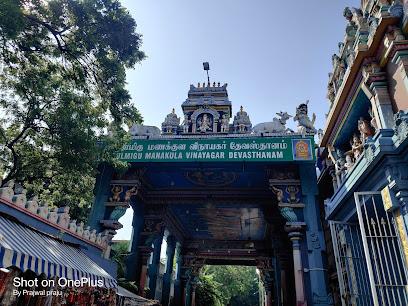
Botanical Garden
Explore the enchanting Botanical Garden in Puducherry, a serene haven showcasing diverse flora, tranquil pathways, and vibrant landscapes for nature lovers.
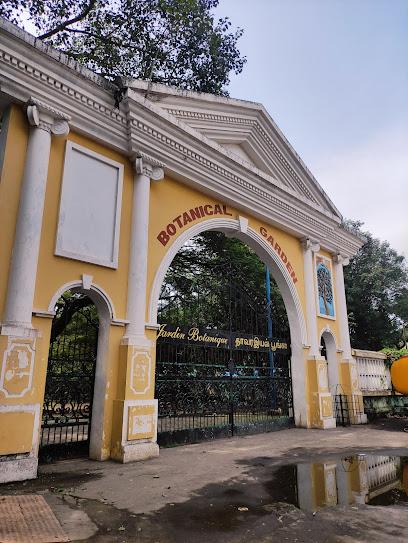
Sri Aurobindo Ashram
Discover tranquility and spiritual growth at Sri Aurobindo Ashram, a peaceful retreat in the heart of Puducherry, India.
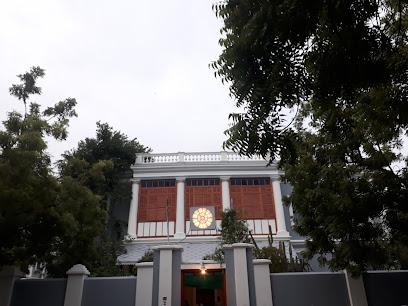
The Sacred Heart Basilica
Explore The Sacred Heart Basilica in Puducherry, a stunning Gothic church known for its architectural beauty and serene atmosphere, perfect for spiritual reflection.
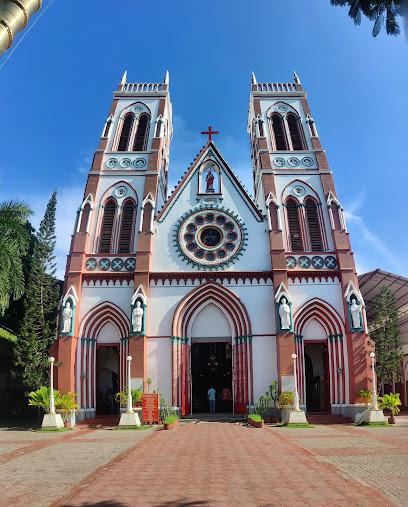
Promenade Beach
Explore the captivating beauty and rich heritage of Promenade Beach in Puducherry, a perfect blend of relaxation and adventure.
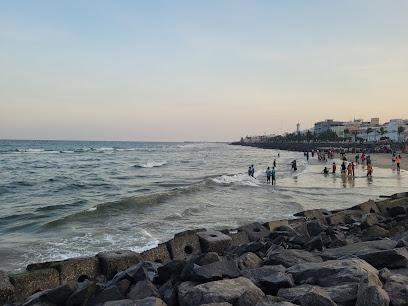
Bharathi Park Puducherry
Discover the tranquil beauty of Bharathi Park in Puducherry, a perfect blend of history and nature amidst the vibrant coastal culture.
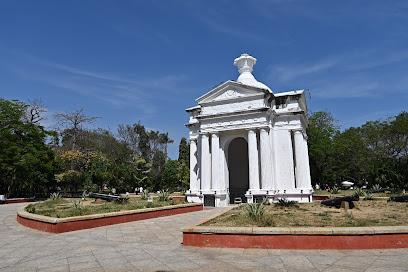
Puducherry Museum
Explore the cultural tapestry of Puducherry at the Puducherry Museum, where history and art intertwine in a beautiful setting.
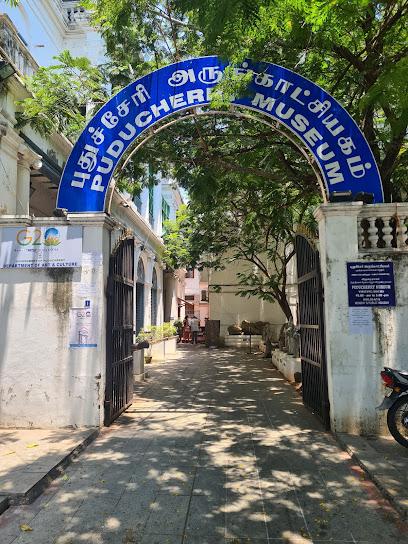
Our Lady of Immaculate Conception Cathedral
Explore the architectural beauty and spiritual tranquility of Our Lady of Immaculate Conception Cathedral in Puducherry, a true gem for travelers seeking culture and peace.
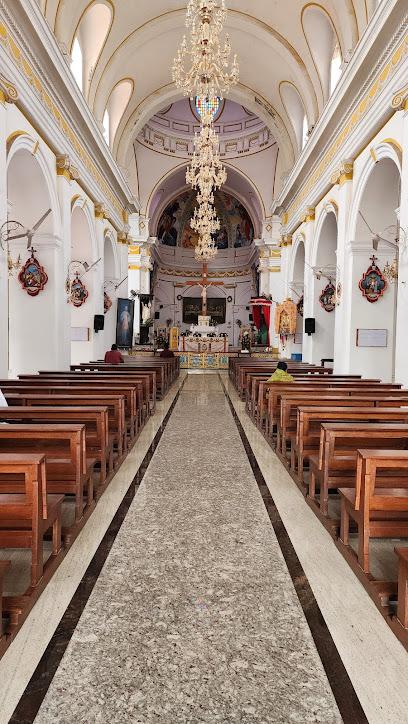
Sadhana Forest
Discover Sadhana Forest, a unique blend of reforestation, community spirit, and sustainable living in the heart of Auroville, Tamil Nadu.

Arikamedu Trust
Explore the archaeological marvel of Arikamedu Trust in Puducherry, a gateway to India's ancient trade history and vibrant cultural heritage.

Le Capucin Hotel
Experience the perfect blend of French colonial charm and Indian vibrancy at Le Capucin Hotel in Puducherry, your gateway to exploration.
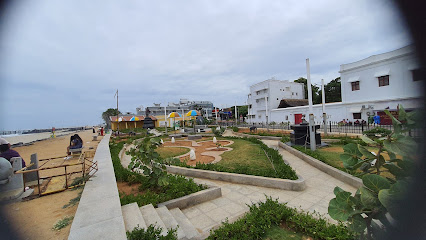
Auroville: The City of Dawn
Discover the serene beauty and spiritual essence of Auroville, a unique township dedicated to harmony and sustainable living in Tamil Nadu, India.
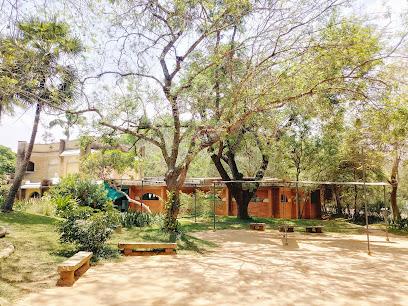
Dr. Abdul Kalam Puducherry Science Centre and Planetarium
Discover the wonders of science and the cosmos at Dr. Abdul Kalam Puducherry Science Centre and Planetarium, a captivating experience for all ages.
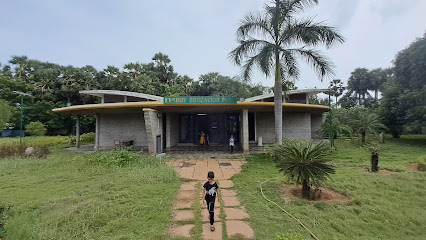
Essential places to dine
Hotel Karai Chettinad Restaurant
Discover the authentic taste of South Indian cuisine at Hotel Karai Chettinad Restaurant in Puducherry – A feast for every palate!
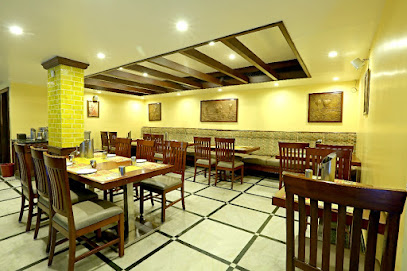
Cafe Xtasi
Experience authentic Italian cuisine at Cafe Xtasi in Puducherry - where every pizza is crafted to perfection.
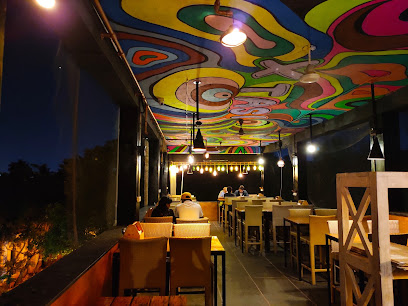
Villa Shanti Hotel & Restaurant
Experience the perfect blend of French elegance and Indian flavors at Villa Shanti Hotel & Restaurant in Puducherry.
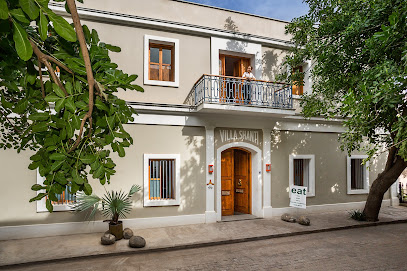
Coromandel Cafe
Discover Coromandel Cafe in White Town, Puducherry - where exquisite flavors meet charming ambiance in every bite.
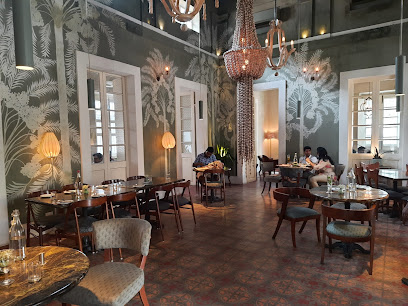
Copper Kitchen
Discover the authentic flavors of India at Copper Kitchen in Puducherry—where culinary traditions meet modern dining.
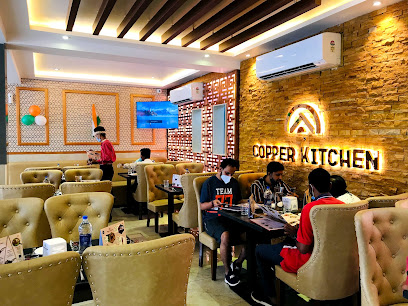
Surguru Restaurant
Discover authentic South Indian flavors at Surguru Restaurant in Puducherry – where every dish tells a story.
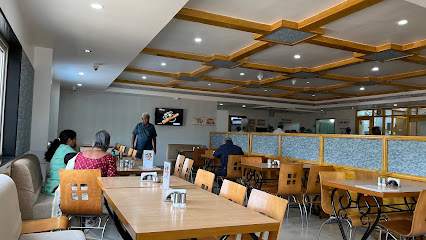
Cafe des Arts
Experience authentic French cuisine at Café des Arts, where every meal is an artistic expression amidst Puducherry's cultural vibrance.
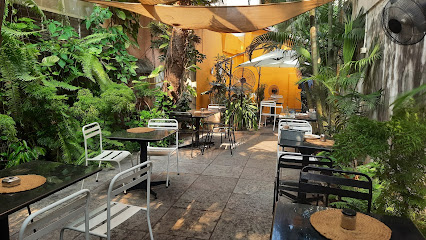
KAMATCHI (Non-Veg Restaurant)White Town branch
Discover the authentic taste of Chettinad cuisine at Kamatchi in White Town - a must-visit restaurant for food lovers.
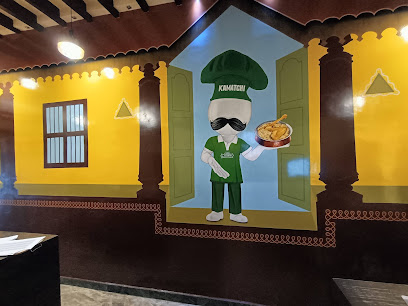
Escape In, Multi Cuisine, Sea View Restaurant
Discover exquisite dining at Escape In in Puducherry - enjoy multi-cuisine delights with breathtaking sea views.
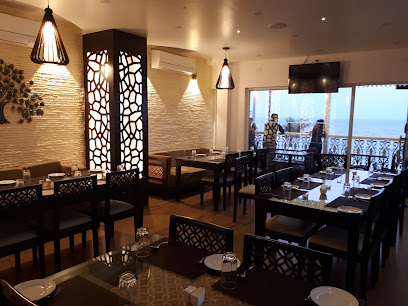
Dilliwaala6
Experience authentic Indian cuisine at Dilliwaala6 in Puducherry's historic White Town – where flavors meet tradition.
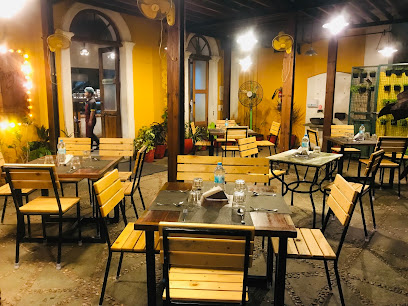
Surguru Spot Restaurant
Experience authentic South Indian flavors at Surguru Spot Restaurant in Puducherry – perfect for breakfast lovers and vegetarian cuisine enthusiasts.
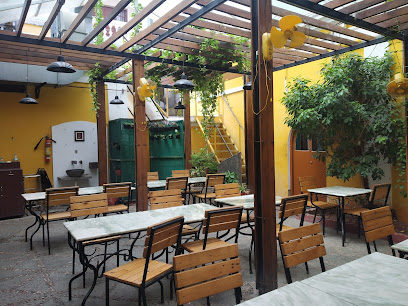
Barbeque Nation- Puducherry
Experience the ultimate barbecue buffet at Barbeque Nation in Puducherry - where every bite tells a story.
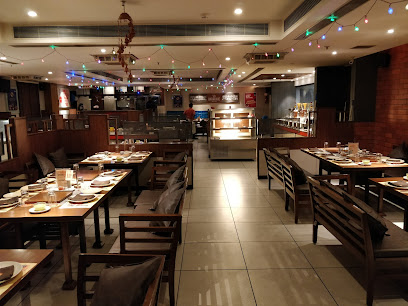
Rendezvous Cafe Restaurant
Discover the flavors of Europe at Rendezvous Cafe Restaurant in Puducherry—where culinary excellence meets cozy ambiance.
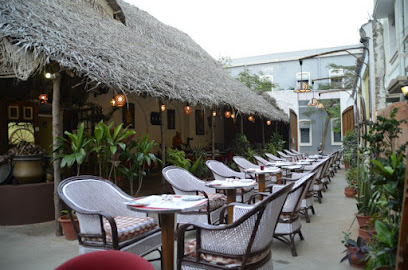
De Bussy Restaurant
Experience the fusion of French and South Indian cuisine at De Bussy Restaurant in Puducherry - perfect for family dining.
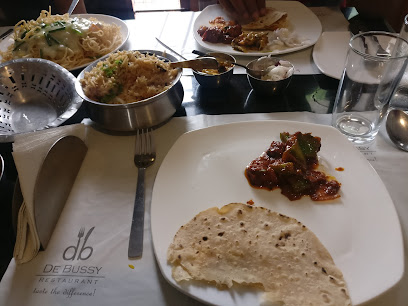
Orange restaurant
Experience the vibrant culinary scene at Orange Restaurant in Puducherry - where delicious food meets an electrifying nightlife atmosphere.
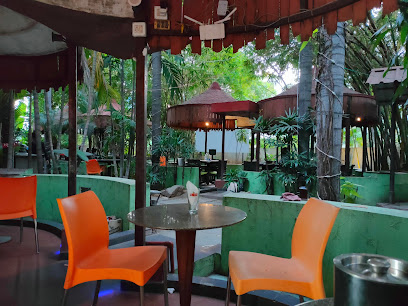
Markets, malls and hidden boutiques
Pothys Pondicherry
Explore Pothys Pondicherry for a unique blend of traditional and modern fashion, featuring exquisite sarees and designer wear for the whole family.
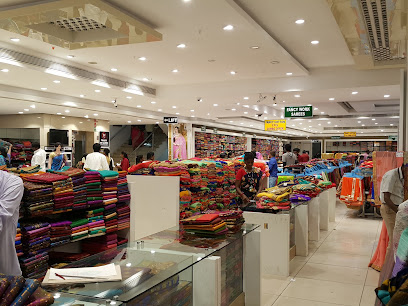
Casablanca
Explore the vibrant Casablanca in Puducherry - a clothing store, café, and chocolate shop that encapsulates local culture and style.
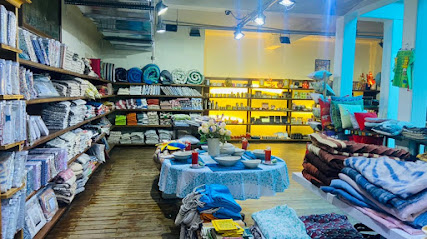
Archies Gallery
Discover unique gifts and delightful greeting cards at Archies Gallery in Puducherry, a perfect stop for tourists seeking memorable souvenirs.
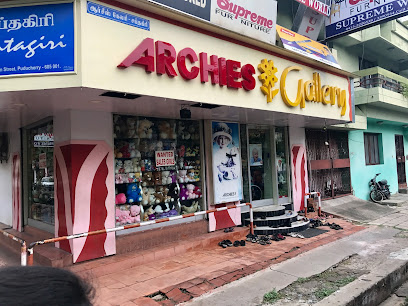
Fabindia, MG Road, Pondicherry
Discover Fabindia on MG Road in Pondicherry, where you can find unique ethnic clothing and handcrafted textiles reflecting India's rich heritage.
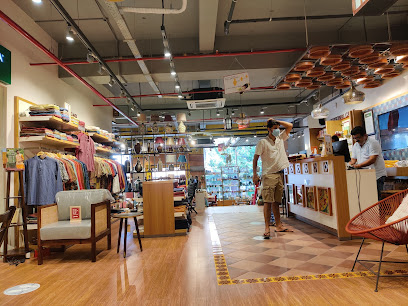
Anokhi
Explore Anokhi in Puducherry for exquisite handcrafted textiles and contemporary designs that showcase India's rich cultural heritage.
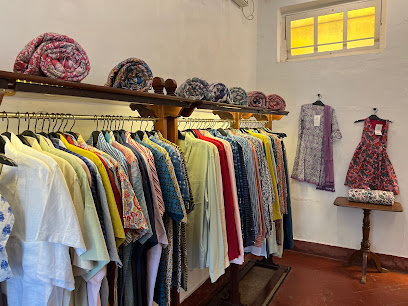
Aurelia
Explore Aurelia in Puducherry for unique women's and children's clothing alongside stylish footwear in a vibrant shopping atmosphere.

La Boutique D Auroville
Discover the essence of local craftsmanship at La Boutique D Auroville in Puducherry, where unique handcrafted treasures await every visitor.
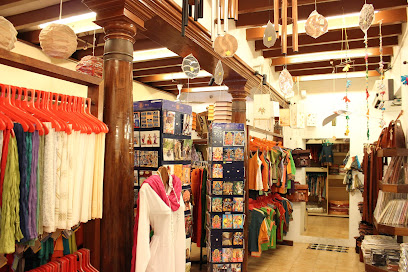
Street shop pondy
Explore the vibrant gift offerings at Street Shop Pondy in Puducherry, where local artisans showcase their craftsmanship and creativity.
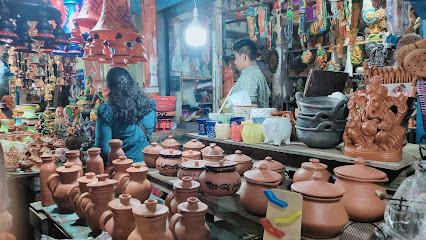
VIA PONDICHERY
Explore VIA PONDICHERY for a unique selection of handcrafted bags that blend tradition and modernity in the heart of Puducherry.
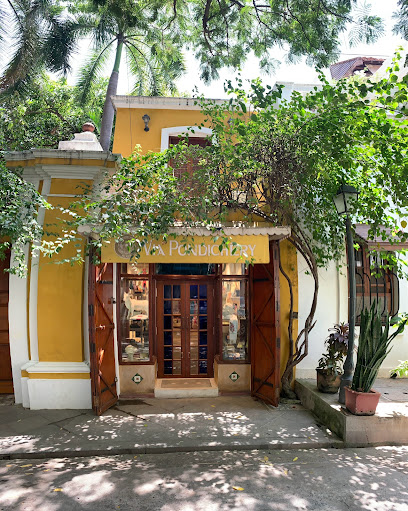
Lifestyle Collections
Explore Lifestyle Collections in Puducherry for unique gifts, cosmetics, and accessories that capture the spirit of this vibrant coastal town.
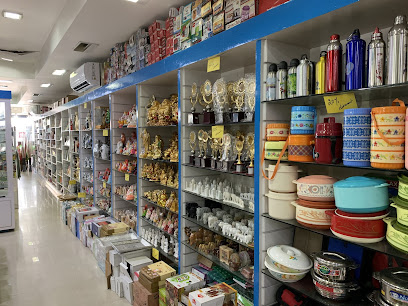
CRAFTS EMPORIUM
Explore the vibrant craftsmanship of Puducherry at Crafts Emporium, your destination for unique handmade gifts and local artistry.

only brandz - Puducherry
Discover the essence of fashion at Only Brandz, a vibrant shopping mall in Puducherry offering stylish women's clothing and bridal wear.

UPASANA PONDICHERRY
Explore Upasana Pondicherry, a boutique showcasing the essence of local craftsmanship and sustainable artistry in the heart of Heritage Town.
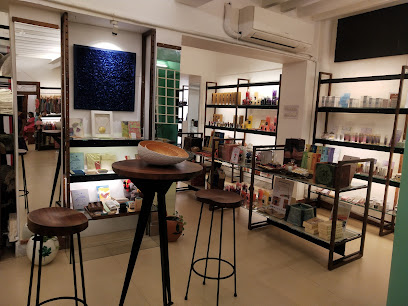
Auro Boutique
Discover unique gifts, aromatic incense, and captivating perfumes at Auro Boutique, a charming shop reflecting the essence of Puducherry's rich culture.
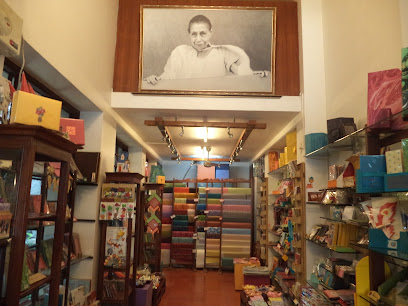
Pondy Local
Explore unique handicrafts and souvenirs at Pondy Local, where every piece tells a story of Puducherry's rich cultural heritage.
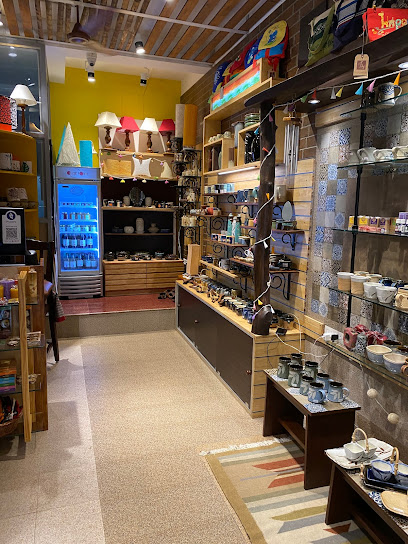
Essential bars & hidden hideouts
Flaming Dragons Lounge & Nightlife
Discover the ultimate nightlife experience at Flaming Dragons Lounge in Puducherry, featuring vibrant music, delicious Asian cuisine, and an inviting atmosphere.

Asianhouse-Best pub in Pondicherry | Top-rated pub with live music dance floor and food offers| Nightlife Happy Hours
Experience the vibrant nightlife at Asianhouse in Pondicherry, featuring live music, great food, and an unbeatable party atmosphere.

LB2 eclipse rooftop
Discover the enchanting LB2 Eclipse Rooftop in Puducherry, where stunning city views meet delicious cuisine and vibrant live music.
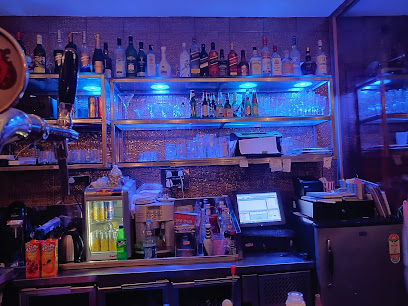
The Storytellers' Bar
Experience the enchanting atmosphere of The Storytellers' Bar in White Town, Puducherry - where every drink tells a story.

Level 4 Sports Bar Pondicherry
Discover the vibrant atmosphere of Level 4 Sports Bar in Pondicherry, where great food, cocktails, and live sports come together.

Float Gastro Pub - Pondicherry
Discover the perfect blend of Asian cuisine and electrifying nightlife at Float Gastro Pub in Pondicherry, where every night is a celebration.
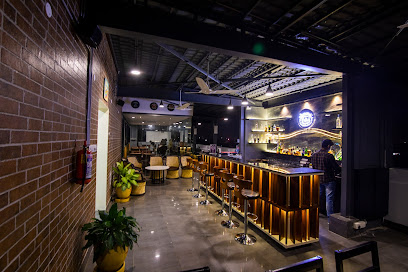
BricZ Resto Bar and Pub - Bang Bang Disc
Discover the vibrant atmosphere and delicious offerings at BricZ Resto Bar and Pub in Puducherry, a must-visit for food and drink lovers.

Pub Zipper
Experience the vibrant atmosphere at Pub Zipper, a premier bar and restaurant in Puducherry offering delectable dishes and refreshing drinks.

Poudou Poudou Restaurant + Bar Lounge
Discover the vibrant Poudou Poudou Restaurant + Bar Lounge in Puducherry, where culinary delights and a lively atmosphere come together for an unforgettable dining experience.
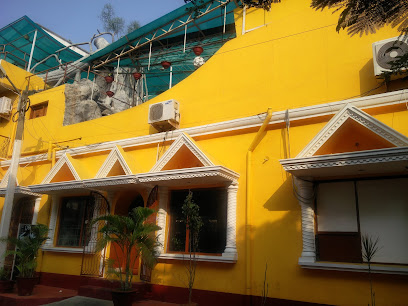
Cloud96 - Dj Party / Restro Bar / Restro Pub
Experience the vibrant nightlife at Cloud96, Puducherry's premier DJ party and restro pub destination, where music and flavor collide.

SKOL Kitchen & Pub
Discover the lively ambiance of SKOL Kitchen & Pub in White Town, Puducherry – where delicious food meets vibrant nightlife.

Dragon Lounge
Explore the tranquil ambiance and unique cocktails at Dragon Lounge, a must-visit bar in the heart of Puducherry's Heritage Town.

Vinodini Cool Bar
Experience the vibrant atmosphere and refreshing drinks at Vinodini Cool Bar, a must-visit for tourists in Puducherry.
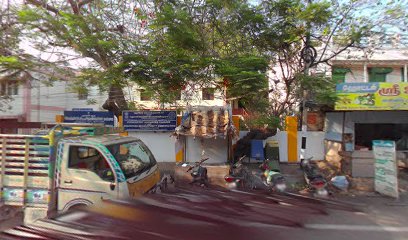
St Mary Cool Bar
Discover the vibrant atmosphere of St Mary Cool Bar in Puducherry, offering an eclectic mix of drinks and friendly service for an unforgettable experience.
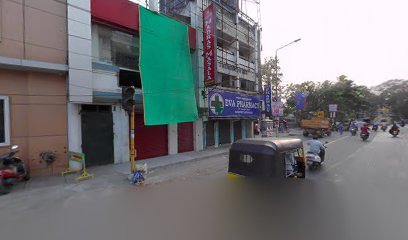
History of Puducherry
-
Puducherry, formerly known as Pondicherry, has a rich history dating back to ancient times. The region was part of the Chola Dynasty from the 3rd century BCE. The Cholas were known for their advances in art, architecture, and maritime trade. Puducherry was a significant port during this time, facilitating trade between India and Southeast Asia.
-
Puducherry's strategic coastal location attracted European colonial powers in the 16th century. The Portuguese were the first to arrive, followed by the Dutch and the Danes. However, it was the French who eventually established a lasting presence in the region.
-
In 1674, François Martin, the first Governor General of French India, established the town of Pondicherry as the capital of French India. Over the next two centuries, Puducherry developed into a thriving colonial settlement. The French influence is still evident today in the town's architecture, cuisine, and cultural practices.
-
The 18th century saw a series of conflicts between the British and the French over control of Puducherry. The town changed hands multiple times, but the Treaty of Paris in 1763 eventually restored it to the French. Despite British attempts to seize it during the Napoleonic Wars, Puducherry remained under French control until the mid-20th century.
-
Following India's independence from British rule in 1947, the French territories in India, including Puducherry, were given the option to join the Indian Union. After a prolonged period of negotiations and a referendum, Puducherry officially became part of India on November 1, 1954. It was later designated as a Union Territory, which it remains to this day.
-
Puducherry is a unique blend of Tamil and French cultures. The French Quarter, with its colonial-era buildings, tree-lined streets, and vibrant bougainvillea, stands in contrast to the traditional Tamil Quarter. The town is also known for its spiritual heritage, being home to the Sri Aurobindo Ashram and the international community of Auroville. This cultural synthesis makes Puducherry a fascinating place to explore.
Puducherry Essentials
-
Puducherry is accessible by air, train, and road. The nearest airport is Chennai International Airport, approximately 135 kilometers away. From Chennai, you can take a taxi or a bus to Puducherry, which typically takes around 3 hours. Alternatively, you can fly to Puducherry Airport from Bangalore, though this is a less frequent option. Puducherry is also well-connected by train, with direct trains from major cities like Chennai, Bangalore, and Mumbai. If you're traveling by road, the East Coast Road (ECR) offers a scenic drive from Chennai to Puducherry.
-
Getting around Puducherry is convenient with various modes of transportation. Auto-rickshaws and taxis are readily available for local travel. Bicycles and scooters can also be rented for a more intimate exploration of the city. Public buses connect Puducherry with nearby towns and villages. Walking is a viable option within the French Quarter, where many attractions are located close to each other.
-
The official currency in Puducherry is the Indian Rupee (INR). Credit and debit cards are widely accepted in hotels, restaurants, and larger shops. However, it's advisable to carry some cash for smaller establishments and street vendors. ATMs are conveniently located throughout the city, so withdrawing cash is generally not an issue.
-
Puducherry is generally a safe destination for tourists. Nevertheless, it is prudent to take standard safety precautions. Avoid walking alone late at night in poorly lit or unfamiliar areas. Be cautious of pickpockets in crowded places like markets and bus stations. Areas such as the bus stand and some parts of the Grand Bazaar may have higher instances of petty crime targeting tourists. Always keep an eye on your belongings and stay aware of your surroundings.
-
In case of an emergency, dial 100 for police assistance, 101 for fire services, and 102 for medical emergencies. Puducherry has several hospitals and clinics that cater to various medical needs. It is advisable to have travel insurance that covers medical emergencies. For minor health issues, there are numerous pharmacies around the city where you can purchase over-the-counter medications.
-
Fashion: Do dress modestly, especially when visiting religious sites. Avoid wearing overly revealing clothing. Religion: Do respect local customs and traditions. Always remove your shoes before entering temples and cover your head if required. Public Transport: Do be courteous and give up your seat to elderly passengers. Don't eat or drink on public transport. Greetings: Do greet people with a 'Namaste' (pressing your palms together) or a handshake. Eating & Drinking: Do try local delicacies and accept food offerings graciously. Don't refuse hospitality, as it is considered impolite.
-
To experience Puducherry like a local, visit the vibrant Goubert Market where you can buy fresh produce and local goods. Engage with locals, who are often friendly and willing to share insights about the city’s history and culture. Don’t miss the evening promenade along the seafront, where locals gather to enjoy the cool breeze. For a unique experience, take a yoga class at one of the many centers around the city, reflecting Puducherry’s spiritual heritage.
Trending Landmark in Puducherry
-
Rock Beach
-
Arulmigu Manakula Vinayagar Devasthanam
-
Botanical Garden
-
Pondy Marina
-
Sri Aurobindo Ashram
-
The Sacred Heart Basilica
-
Bharathi Park Puducherry
-
Puducherry Museum
-
Indira Gandhi Statue
-
Mahatma Gandhi Statue
-
Immaculate Conception Cathedral
-
Arikamedu
-
Serenity Beach
-
New Light House
-
Mahakavi Bharathiyar Memorial Centre
Nearby Cities to Puducherry
-
Things To Do in Pondicherry
-
Things To Do in Chennai
-
Things To Do in Jaffna
-
Things To Do in Bengaluru
-
Things To Do in Madurai
-
Things To Do in Coimbatore
-
Things To Do in Mysore
-
Things To Do in Trincomalee
-
Things To Do in Anuradhapura
-
Things To Do in Kozhikode
-
Things To Do in Kochi
-
Things To Do in Sigiriya
-
Things To Do in Polonnaruwa
-
Things To Do in Trivandrum
-
Things To Do in Kanyakumari
















